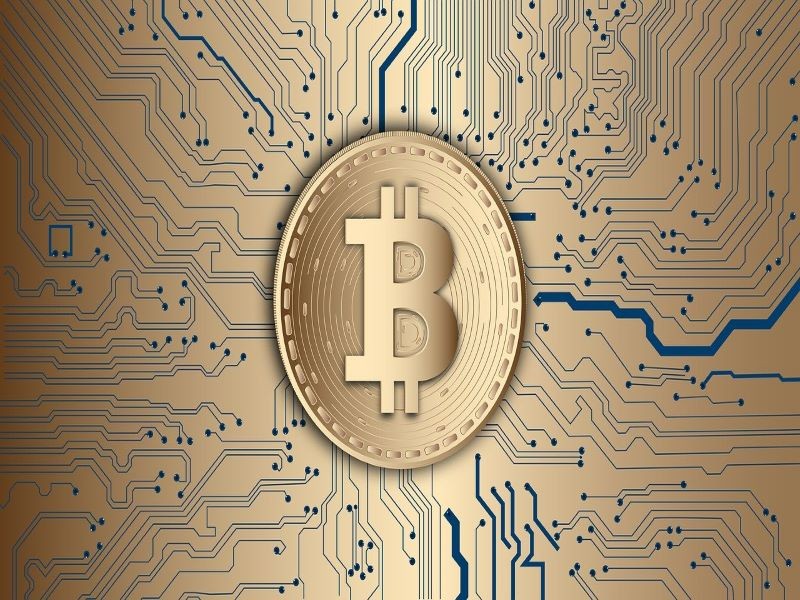
Trump establishes strategic Bitcoin reserve using seized govt assets
Washington: U.S. President Donald Trump has signed an executive order to create a strategic reserve of cryptocurrencies, specifically Bitcoin, using assets already owned by the government through criminal or civil asset forfeitures, dashing hopes for a direct government purchase of new tokens, Reuters reported.
The announcement came on Thursday, ahead of a scheduled meeting with cryptocurrency executives at the White House on Friday.
Following the news, Bitcoin prices fell by around 5% to $85,000 but later recovered to $89,200 in early European trading on Friday, said the report.
Billionaire David Sacks, the White House's cryptocurrency policy head, revealed that the "Strategic Bitcoin Reserve" would be capitalized solely with Bitcoin obtained through federal forfeiture proceedings, said the Reuters reported.
He confirmed the government had no immediate plans to purchase additional tokens but did not rule out the possibility in the future.
According to a factsheet on the White House website, the executive order authorizes the U.S. commerce and treasury secretaries to explore "budget-neutral strategies" for acquiring more Bitcoin, provided there are no extra costs to American taxpayers, according to the report.
Andrew O’Neill, managing director of digital assets at S&P Global Ratings, remarked that the move is largely symbolic as it formally recognizes Bitcoin as a U.S. government reserve asset for the first time.
However, he noted there is no clear indication of how much Bitcoin the government currently holds or if it would acquire more.
Market reaction and criticism
Trump’s announcement fell short of market expectations, causing disappointment among cryptocurrency investors. Bitcoin-focused hedge fund Capriole Investments' founder, Charles Edwards, criticized the move, describing it as a "disappointing outcome."
"No active buying means this is just a fancy title for Bitcoin holdings that already existed with the government. This is a pig in lipstick," Edwards posted on social media platform X.
Trump's earlier commitment to supporting the crypto industry had driven Bitcoin prices to a record high of $109,071.86 in January. The executive order’s lack of commitment to active purchases, however, led to a sharp decline in market sentiment.
Creation of a digital asset stockpile
In addition to the Bitcoin reserve, the executive order also announced the establishment of a "U.S. Digital Asset Stockpile," which will comprise cryptocurrencies other than Bitcoin. Similar to the Bitcoin reserve, this stockpile will consist solely of assets acquired through asset forfeiture, with no immediate plans for further purchases.
Trump recently named five digital assets — Bitcoin, Ether, XRP, Solana, and Cardano — that he expects to be included in the reserve, triggering a temporary price surge for each. However, the government clarified that no purchases would be made beyond what has already been seized.
Industry support and concerns
The White House crypto summit scheduled for Friday is expected to serve as a platform for Trump to elaborate on his crypto-related policies. Supporters of the initiative argue that maintaining a Bitcoin reserve could benefit taxpayers if prices rise in the future.
David Sacks emphasized that the U.S. government would not sell any Bitcoin from the reserve and instead treat it as a long-term store of value, akin to the role of gold in Fort Knox.
"The Reserve is like a digital Fort Knox for Bitcoin, often referred to as 'digital gold,'" Sacks wrote on X.
Despite backing from the crypto community, Trump's move has sparked conflict-of-interest concerns.
Critics have pointed to his family's involvement in cryptocurrency ventures, including the launch of meme coins and a stake in World Liberty Financial, a crypto platform.
Trump’s aides have maintained that he has relinquished control of his business ventures, which are currently under review by external ethics lawyers.
However, the decision to create a government-backed Bitcoin reserve has intensified scrutiny of his ties to the crypto industry.
Sacks estimated that the U.S. government owns approximately 200,000 Bitcoin, claiming that prior premature sales of seized assets have cost taxpayers around $17 billion. However, he did not provide evidence to substantiate these claims.
While the executive order formalizes Bitcoin as a U.S. reserve asset, it leaves uncertainty regarding future acquisitions or the potential impact on the broader crypto market.
Support Our Journalism
We cannot do without you.. your contribution supports unbiased journalism
IBNS is not driven by any ism- not wokeism, not racism, not skewed secularism, not hyper right-wing or left liberal ideals, nor by any hardline religious beliefs or hyper nationalism. We want to serve you good old objective news, as they are. We do not judge or preach. We let people decide for themselves. We only try to present factual and well-sourced news.







